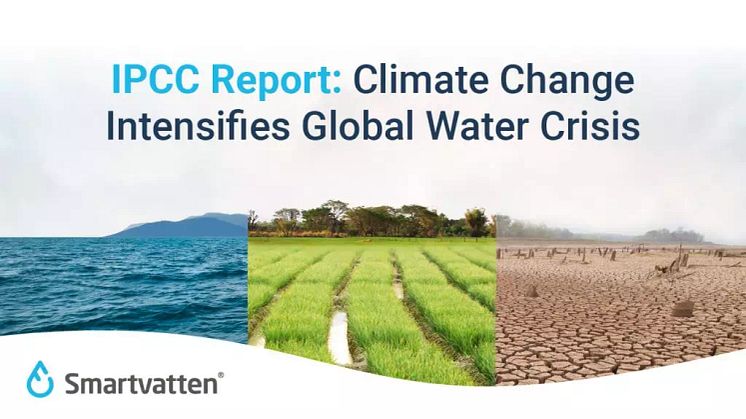
Blog post -
IPCC Report: Climate Change Intensifies Global Water Crisis
Climate change affects every region on earth, is intensifying, and is undeniably man-made, according to the latest IPCC Climate report. The changes directly affect on the global water crisis, leading to more intense rainfall and flooding in many regions as well as more extreme droughts in others. If we want to have a chance at stopping or slowing the changes, the world needs to take immediate and drastic action – and the role of water is essential.
The landmark report, released in August, was created by the Intergovernmental Panel on Climate Change (IPCC), the United Nations organization focused on bringing together scientific research on climate change from all over the world. Its latest report is the most extensive assessment of climate science so far, prepared by 234 scientists from 66 countries, based on more than 14,000 studies, and signed by 195 countries.
Code Red
Because of progress in climate modeling, it is now possible to better understand the impact of emissions on natural systems. One of the report’s findings is that ‘the capacity of oceans and land to act as carbon sinks seems to be weakening, which would mean that the same level of greenhouse gas emissions will be resulting in larger temperature increases than have so far been the case.’
The “report is a code red for humanity,” says UN Secretary-General António Guterres. “The alarm bells are deafening, and the evidence is irrefutable: greenhouse gas emissions from fossil fuel burning and deforestation are choking our planet and putting billions of people at immediate risk.”
Global Water Crisis
The importance of water in climate change is clear. Sea levels have risen 20 centimeters between 1901 and 2018, faster than ever before in the last 3,000 years. Oceans have warmed up at a much higher pace than at any earlier time since the end of the last Ice Age. Rising temperatures will come with significant changes in the global water cycle: regions that are already wet will become much more so, and those regions that are already dry will see more extreme droughts.
Increased extreme sea level events, permafrost thawing other changes to the ocean like marine heatwaves and ocean acidification will ‘affect both ocean ecosystems and the people that rely on them, and they will continue throughout at least the rest of this century.’
Making water a top priority in climate policy is essential if we want to restore ecosystems, strengthen the earth’s ability to store carbon and reinforce natural systems aiding human life in enduring extreme weather events.
No Time for Delay
The next major global climate summit is scheduled to start on October 31st in Glasgow. Secretary-General Guterres: “If we combine forces now, we can avert climate catastrophe,” but “there is no time for delay and no room for excuses.”
Want to learn more about what your company can do to do your part in combating climate change and contribute to a sustainable future? Contact us at info@smartvatten.com.

